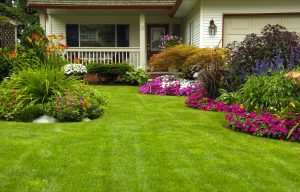How to Make Your Small Hawaii Home Look Bigger
You can’t add square footage to your small Hawaiian home, but there are ways to make a modest dwelling seem much larger. If you are selling your house, you want to give potential buyers the idea that, for a small house, there’s a lot of space.
All About Staging
Proper staging makes a big difference in how quickly your home sells. Staging accentuates the positive and minimizes the negative aspects of any property. Your real estate agent can recommend a professional stager, but many people can perform these tasks themselves.
Any room benefits from as much light as possible. Hawaiian homes are usually light and airy, but you can make your home even lighter and airier – and larger looking – with the right staging and s little in the way of window treatments.
Painting Contrasts
It’s always a good idea to give your interior walls a coat of paint before putting the house on the market. In some rooms, such as the kitchen or bathrooms, create the illusion of a larger space by using a bright white paint contrasting with a darker paint. The resulting depth created by the white and dark contrast makes the space look bigger.
Furniture to Scale
Furniture out of proportion to the room dwarfs it. You probably know someone who put a large bed in a small bedroom, leaving little room to walk around. If that’s the case in your home, replace the bed with a smaller version until you find a buyer. Put the bed as far away from the door as possible to make the room feel larger.
Look around your own home and see if there is any large item making a room look even smaller than it is. For many people, a giant TV in a small space is their favorite choice for entertainment, but it’s wise to replace the screen with a smaller version until your house sells.
Decorating a small space to make it appear larger means making some adjustments. For example, rather than purchase a sofa for the living room, consider buying a love seat. Not only it a love seat less expensive, but its proportions fit a small room. When furniture shopping, look for other proportionate pieces. Another tip: Consider furniture fabrics the same color as your walls. This makes the furniture blend in, giving a sense of a larger space.
The Mirror Effect
The right use of mirrors makes any room look larger. Placing a mirror across from a window reflects light and provides visual depth. Another way to create depth is by choosing a focal point in the room and angling a mirror toward it. A large mirror over the sofa is often effective. For best results, use a large mirror or two rather than a lot of small mirrors.
Contact Us
If you’re looking to buy or sell a home or find a rental property, you need a knowledgeable, experienced realtor familiar with all aspects of the Hawaiian real estate market. Contact Island Realty Group LLC at 808-689-7407 or IslandRealtyGroup@irghi.com.
May 24, 2019




